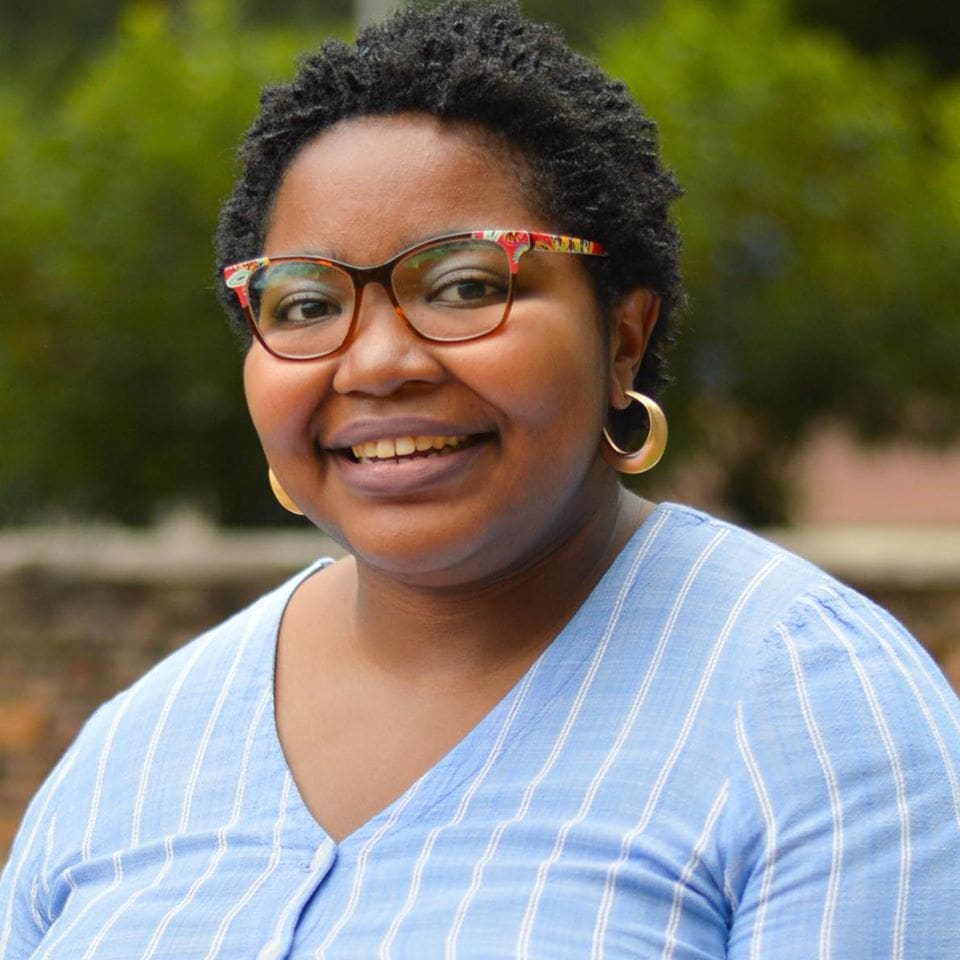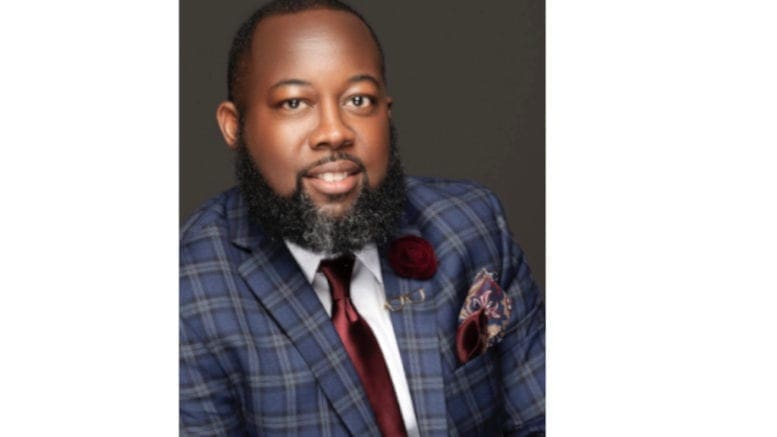By Arielle Robinson
Cobb County Board of Education Post 3 member Leroy “Tre” Hutchins weighed in on the school district banning the teaching of critical race theory, explaining why he and his Democratic colleagues abstained from the vote along with other issues of race and free speech in the district.
On Thursday, Cobb County School District became the second metro Atlanta county to ban the teaching of CRT, after Cherokee County.
The Cobb and Cherokee school districts also voted to ban the 1619 Project, a series of New York Times articles that teach the history of slavery and its effects on Black people in the United States.
The four white Republicans on the school board — Randy Scamihorn, David Chastain, David Banks and Brad Wheeler — voted at the school board’s monthly meeting to ban CRT and the 1619 Project.
All three of the Black Democrats on the board — Hutchins, Charisse Davis and Dr. Jaha Howard — abstained from voting on the ban.
At the Thursday work session, Chairman Scamihorn could not clearly define what CRT is when Hutchins asked him. (The debate takes place around the 2:20:12 mark).
Scamihorn referred to CRT as a Marxist ideology based on what parents said during the public comments portion of meetings. He did not have a formal definition.
Scamihorn and Hutchins continued to go back and forth with one another on the subject during the heated meeting.
In a phone conversation the Courier had with Hutchins, he said that the Republicans’ decision to ban CRT was a political ploy.
Hutchins speculated as to why Scamihorn would introduce an anti-CRT resolution without a clear definition. He figured that someone in a higher position along with pressure from parents is why the chair would do so.
Hutchins also explained that the lack of a formal definition for what CRT and the 1619 Project are was why he and his Democrat colleagues abstained.
“My concern is we have now passed a resolution that we cannot define — which is crazy — and then being considered to be codified in our policy,” Hutchins said. “And we don’t have a definition for it.”
The board member said that even if an incorrect definition of CRT was brought forward, that would have given him and his colleagues more to work with.
Overall, Hutchins said he was lost as to why the resolution was even being voted on.
Hutchins said he felt as though Cobb is jumping on the right-wing bandwagon of denouncing CRT.
Statewide, the Georgia Board of Education recently passed a resolution seeking to prohibit the teaching of race in schools. This comes after Governor Brian Kemp condemned CRT as “dangerous.”
Nationwide, states and local governments are moving to ban CRT while those in support of CRT rally at their corresponding legislative offices.
Hutchins said that many are misinformed about what CRT actually is.
He said that CRT has never been taught in Cobb schools — or in the state of Georgia, for that matter.
Hutchins said that CRT is a theory and not a practice. It is not a curriculum or something with a textbook or a lesson plan.
“I get worried when I hear people say … that someone is actually teaching children critical race theory — that is so inaccurate,” Hutchins said.
CRT is a lens one looks through to gain an understanding of racial inequities and how other axes of oppression intersect with racism, Hutchins said.
For example, CRT could mean looking at the number of faculty hired and determining that those hired are not from a diverse racial or ethnic group that matches the diversity of the school district.
Applying CRT could also mean analyzing things such as disproportionate disciplinary rates among Black and Brown children vs. white children.
Then a plan would be applied to correct those disproportionate disciplinary rates, which Hutchins says are prevalent and excessively affect Black and Brown kids in the school district.
The theory looks at all institutions of US society, like education, legal institutions and the work place through a lens of racial equity/inequity, Hutchins said.
Hutchins said CRT does not have its origins within schools, as “[CRT] is a legal document. It was looking at law and laws throughout our history and looking at them through a critical race lens.”
Hutchins also addressed an argument from some people who do not support CRT, which is that teaching CRT will make white children feel guilty for teaching the history of racism in the United States.
Hutchins turned the argument around, saying that the feelings of Black and Brown students must also be centered.
“If that’s the case for white kids, then I’m sure that will be the case for Black kids,” Hutchins said. “What would be the shame and the guilt of knowing that you were once a slave — that you are not even human or are classified as a real human — that you were property like a dog or a horse?”
Hutchins said that instances of racism in Cobb schools are completely ignored by the board, despite endless concerns from Cobb students, faculty, parents and other residents.
Connected with the issue of concerns over racism being ignored is also the new media policy that the Republicans supported, he said.
In addition to the CRT ban, the board passed a resolution stating that CCSD employees cannot talk to media unless they go through the district’s communications office.
The board also made the public aware that they are monitoring employees’ social media accounts.
CCSD employees may now be disciplined if their social media post “Disrupts the smooth and orderly operation of the District” or “Places in doubt the reliability, trustworthiness, or sound judgment of the District, the Cobb County Board of Education, or any of its employees.”
“Why now?” Hutchins asked during the phone conversation about the media policy. “ … We are a society of free speech and anything that limits that or censors free speech is unconstitutional.”
Hutchins said the policy is a way of maintaining the status quo in the school district.
Hutchins also drew attention to Scamihorn kicking out Dr. Jillian Ford, a Kennesaw State University professor and activist, during her portion of public comment at the evening session.
He used this as an example of attempted conversations about racism in CCSD being shut down by the Republican-led board.
Ford was reading off racist threats verbatim that a white Cobb student made toward Black students when Scamihorn cut her speaking section short because of the expletives and racial slurs she quoted.
Hutchins also pointed out that CCSD still has not come up with a resolution condemning racism, despite many metro Atlanta cities and school districts doing so last summer.
The board’s unwillingness to address Joseph Wheeler High School students who want to change their school that was named for a Confederate general is also another blatant example of CCSD not looking out for minority students, Hutchins said.
“Black and Brown children are not safe [throughout Cobb County schools],” Hutchins said. “So what about the Black kids? Are we only concerned with … the social-emotional health of the white kids through teaching history? So now we will water down history to make children comfortable? Well, we haven’t done that for Black children ever.”
Applying CRT to Cobb schools would mean portraying historical events — like slavery and Jim Crow laws — accurately, Hutchins said.
“When you go to Germany, they’re not watering down their history as it relates to the Holocaust and Nazism and how it rose to power,” Hutchins said. “They teach us so that history doesn’t repeat itself. They teach us so that kids can critically learn what transpired in our past.”
For far too long in schools, the teaching of American history has only been white history, he said. A complete portrait of the melting-pot that is the US must be taught. To do so would be truly honoring the US and its diversity.
Fear is what motivates those who are opposed to CRT, Hutchins said.
Implementing the theory poses a threat to those living privileged lives and that can be scary for those with certain societal advantages, he said.
Hutchins again said that most people criticizing CRT do not know what it is.
“They have not studied critical race theory to understand the premise of the theory,” Hutchins said. “They just take those talking points, because really, to be honest, it’s too much to try and understand what critical race theory is…So what they’ve done is latched on to these talking points — these political talking points — to create and incite fear.”
Ahead of June’s school board meeting, Cobb residents in favor of CRT demonstrated in front of the school board building.
Hutchins said he felt proud when he saw those demonstrators.
The various age and race backgrounds represented at the protest signify that there are multitudes of people who care to see Cobb County schools grow into an equitable school district, he said.
“I love community interaction,” Hutchins said. “I love people sharing their voice, even if it’s different from mine because I believe that that is American. I believe that that is the American way. That is patriotism to me.”
Hutchins still holds out hope that productive conversations about racism in Cobb schools can be prioritized on the school board.
If the solutions to racism are not yet agreed upon among members, at the least, sparking a conversation on race is a start, he figures.
“I think we do have the capability and the capacity within Cobb County to do that,” Hutchins said. “But again, it’s going to take people willing to come to the table.”
About Critical Race Theory
Critical Race Theory originally arose in the legal community, and one of its earliest theorists was Derrick Bell, a law professor at Harvard, who finished his career at New York University School of Law. Richard Delgado and Jean Stefancic are also prominent proponents.
A good succinct introduction can be found in a paper by Nicholas Daniel Hartlep which you can read by following this link.
For a more comprehensive look at the theory, the book Critical Race Theory: An Introduction, by Delgado and Stefancic is a good introduction.
The five tenets of Critical Race Theory were listed in Hartlep’s article as follows (with descriptions of what each tent means):
There are five major components or tenets of CRT: (1) the notion that racism is ordinary and not aberrational; (2) the idea of an interest convergence; (3) the social construction of race; (4) the idea of storytelling and counter-storytelling; and (5) the notion that whites have actually been recipients of civil rights legislation.

Arielle Robinson is a student at Kennesaw State University. She also freelances for the Atlanta-Journal Constitution and is the former president of KSU’s chapter of the Society of Professional Journalists as well as a former CNN intern. She enjoys music, reading, and live shows.

All tepublicans are afraid of CRT, they are afraid theo people of color will get them, because rich, selfish elitist are guilty of taking away the peoples votes and voices.